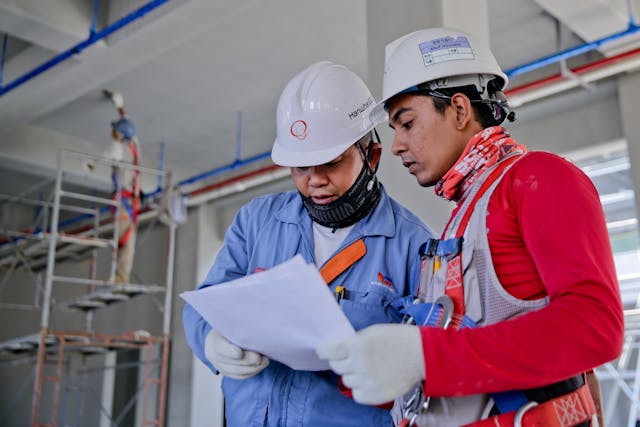
As artificial intelligence rapidly transforms industries — from software development to customer service — uncertainty about the future of work is reshaping career planning for young professionals. Yet one sector remains firmly positioned beyond the reach of automation: construction.
Television host and skilled-trades advocate Mike Rowe has long argued that AI is coming for software engineers and coders, challenging a decade of guidance encouraging students to pursue tech careers. But he notes that workers in construction — from plumbers and electricians to heavy equipment operators and carpenters — are needed now more than ever.
.jpg)
The U.S. construction workforce is facing a critical demographic shift as veteran tradespeople retire and not enough new workers replace them. Labor shortages are driving costs higher and delaying essential building needs such as new schools, housing, infrastructure and commercial sites. Industry projections estimate more than 400,000 additional workers will be required in 2025 alone to keep up with demand.
While AI tools can streamline planning, scheduling and administrative tasks, the physical skills required on a jobsite — assembling structural steel, wiring electrical systems, pouring concrete — cannot yet be automated at scale. Craftsmanship, adaptability and safety awareness all rely on human expertise.
That has helped fuel a surge of interest in construction education. Across the country, high school students are increasingly drawn to demonstrations at career expos involving tools, machinery and skilled work that can’t be outsourced or replaced by software.

In Nevada, apprenticeship providers such as Associated Builders and Contractors of Nevada are proving how alternative pathways can produce debt-free, high-earning professionals. The organization’s state- and federally registered programs train apprentices in trades like plumbing, electrical, and heavy equipment operations. Participants spend full workdays on active jobsites while attending evening classes, building real-world skills while earning a paycheck.
Graduates emerge fully certified and prepared for stable, in-demand careers — without the burden of student loans.
As the Silver State experiences rapid population growth and a wave of new development in Las Vegas and Reno, the need for a sustainable construction workforce becomes more urgent.
Apprenticeship programs, industry recruitment and local partnerships are increasingly recognized as a safeguard for Nevada’s economic future. Without enough skilled hands on the ground, plans for new entertainment venues, data centers, neighborhoods and transportation upgrades could stall.
While AI may play a growing role in construction management and workflow optimization, the buildings themselves still require human strength and skill. From laying foundations to installing the final fixtures, trained professionals are the backbone of the industry — and the state’s growth.
For young Nevadans seeking stable, well-paid and respected careers amid an unpredictable job market, the clearest path forward may not be behind a computer screen — but out on the jobsite.
Originally reported by Kara Arenas, Vice President, ABC Nevada in Business Press.